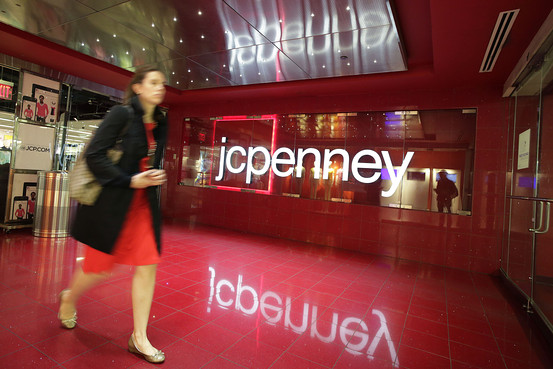|
THE WALL STREET
JOURNAL. |
Business
|
Markets
Bitter
Medicine in Store for Activists
As Hedge Funds Step
Up Their Hunt for New Targets, Companies Are Bolstering Their
Defenses
|
|
By
Liz Hoffman
Jan. 28, 2014 7:25
p.m. ET

Ryan Etter |
As
activist hedge funds step up their hunt for new targets, companies are
bolstering their defenses.
Some
are fortifying their poison-pill provisions—measures that prevent an
unwanted shareholder from taking a stake above a certain level. Others
are speeding up their acquisition timetables to minimize interference
from shareholders. And some are tightening rules for nominating board
members to make it harder for activists to get board seats.
Activist investors, those who take stakes in companies with the aim of
pushing management to boost returns through increased share buybacks,
higher dividends or even a breakup of the company, have become a
growing force in U.S. companies.
This
year alone, activist investor
Carl Icahn
has demanded more share buybacks from
Apple Inc. and taken a stake in
eBay
Inc. to push for a separation of its PayPal unit. Investor
Daniel Loeb
is nudging
Dow Chemical Co. to split
itself in two, and Jana Partners LLC is using its stake in
Juniper Networks Inc. to push for cost cuts.
"Activism is clearly here to stay, and smart companies are rethinking
their approaches," said M. Adel Aslani-Far, global co-chairman of
Latham & Watkins LLP's mergers-and-acquisitions practice. "There is a
time to engage, and there's a time to dig in."
|
How Penney, Chuck E. Cheese Took New Poison Pills

Associated Press
|
Hertz
Global Holdings Inc. and
Aéropostale Inc. recently adopted tough poison pills that
kick in when a shareholder takes a stake of 10%. On Tuesday,
J.C.
Penney Co. announced a type of poison pill that keeps an
even tighter lid on how many shares investors can buy, citing tax
reasons.
For
decades, poison-pill defenses typically were triggered when a
shareholder's stake reached 20% of the company's stock outstanding.
Once that happened, the company could flood the market with shares,
diluting the shareholder's stake and reducing the holder's influence.
But
that threshold was most effective against corporate suitors wanting to
wage a hostile takeover, not activists, who can often wield influence
with much smaller stakes.
More
than half of the poison pills adopted in 2013 are designed to be
triggered when a holder gains a stake of 10%. In 2005, less than 8% of
poison pills had a trigger of 10%, according to FactSet.
"Pills are being carefully crafted with an activist in mind," said
Chris Cox,
a Cadwalader Wickersham & Taft LLP lawyer who advises boards.
More
corporate poison pills also now explicitly include swaps, options and
other financial products as part of an ownership stake. About 59% of
poison pills adopted last year counted these derivatives, up from just
4% in 2008, according to FactSet.
But
these defenses also could backfire on companies. While activists can
be an irritant to management, some have succeeded in helping bolster
share prices and making companies leaner and more efficient, some
investors argue. And activists often feel they are acting on behalf of
other shareholders.
"The
notion that activists are the enemy, or that companies have to put up
walls, is illogical," said Greg Taxin, managing director of Clinton
Group, an activist fund with about $1.5 billion in assets. "I'm an
owner of these businesses, and I'm trying to make them more successful
in a way that benefits everybody."
Still, companies are guarding their gates.
Big
companies, including
Pfizer Inc. and
Agrium Inc., have changed their corporate bylaws in recent
years to make it harder for outsiders to gain board seats. Some
companies now require more advance notice and more details from
shareholders seeking to nominate directors, including ownership of
derivatives and the names of any other shareholders they are working
with. Requirements that once ran for a few lines in corporate bylaws
for nominations now take up several pages.
And
when it comes to mergers—commonly a field that attracts activists'
attention—some companies also are changing tactics. They have chosen a
faster, more direct type of takeover, known as a tender offer. These
deals are at their highest level since at least 2003, according to
FactSet.
In a
tender offer, buyers purchase shares straight from investors rather
than seeking a vote of all shareholders. That means a deal can be
completed in a few weeks rather than months, giving hedge funds little
time to organize and seek a price bump.
Apollo Global Management LLC earlier this month agreed to
buy Chuck E. Cheese's owner,
CEC Entertainment Inc., for
$950 million through a 20-day tender offer, the minimum amount of time
allowed under securities rules. CEC also adopted a poison pill with a
10% threshold.
Almost 30% of deals in the second half of 2013 used a tender offer,
compared with 9.6% in 2006, according to FactSet.
The
deals became easier to do thanks to a legal change last year in
Delaware, where the majority of U.S. companies are incorporated.
In
tender offers, "there is less of an opportunity for someone to come in
and create mischief," said Michael Carr, head of Americas M&A for
Goldman Sachs Group Inc.
Write to
Liz Hoffman at
liz.hoffman@wsj.com
|